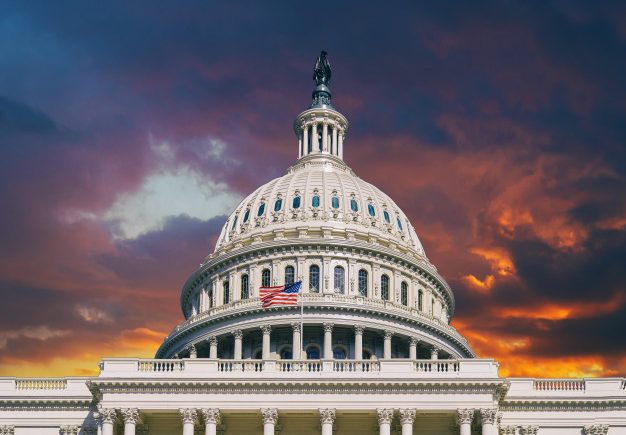By Marilyn M. Singleton, MD, JD.,
In Law and Order re-runs after some tragedy has occurred, prior to grilling the victim’s family the police officer quickly states the obligatory phrase, “I’m sorry for your loss.” It is sterile, meaningless, and as heartfelt as the streaming digital “Thank you” at the automated gas pump.
Fortunately, genuine compassion has been given another reprieve. Pennsylvania recently became the 37th state to enact an “apology law.” When there is an unanticipated outcome of medical care, apology laws allow physicians to express sincere feelings without fear that such expressions will be used against them in court.
These statutes range from shielding all “statements, affirmations, gestures or conduct expressing apology, fault, sympathy, commiseration, condolence, compassion or a general sense of benevolence” (Connecticut) to expressions of sympathy or benevolent gestures, i.e., “actions which convey a sense of compassion or commiseration emanating from humane impulses” (California).
Psychologists teach us that an apology is an important way of “showing respect and empathy for the wronged person.” Apologies improve patient-doctor communication and reduce patient anger. A 2010 Annals of Internal Medicine study looked at University of Michigan and Boston’s Brigham and Women’s hospitals. The study found that malpractice claims decreased by almost one half where hospitals admit and apologize for mistakes.
In an age where physicians are increasingly engrossed in compliance paperwork and have their eyes glued to the computer screen with electronic medical records, any tool that injects humanity is more than welcome. The findings in a recent paper in Journal of Hospital Medicine were telling: only 4 percent of interns practiced “etiquette-based” medicine.
Such etiquette includes (1) introducing themselves; (2) explaining their role in patient care; (3) touching their patients with a handshake, reassuring gesture, or physical exam; (4) sitting and talking with patients; and (5) asking open-ended questions to get patients to relax and talk more about themselves.
These interns are busily learning algorithms, evidence-based guidelines, and fulfilling regulatory mandates. But they will soon discover that checklists will never replace thoughtful individualized care.
A Pennsylvania community hospital Emergency Department looked at physician time usage: direct patient contact, data and order entry, discussion with colleagues, and reviewing records and test results. A whopping 43 percent of their time was spent on data entry versus 28 percent on direct patient contact.
The depersonalization of medicine is disconcerting to be sure. But it is one band on the spectrum of disconnectedness. What is more troubling is the accepted disconnection between people and facts.
At least 80 percent of the comments to the newspaper article explaining the apology law were by people tethered to their hatred. The willfully uninformed railed about how letting incompetent doctors off the hook was what we can expect from a Republican governor.
Per usual, they had not read the article. The law does not shield the physician from malpractice lawsuits; it says that compassionate statements cannot be part of the collective evidence that he breached the standard of care.
The fact is that Pennsylvania’s Democratically controlled legislature unanimously passed the law and the Republican governor signed it. I suppose haters can blow off unjustified steam and begrudge physicians the ability to express spontaneous, unrehearsed, uncalculated empathy.
Of course people reinvent the truth. We have learned from our professor-in-chief: “If you like your doctor you can keep your doctor. Period.”
Well, I am sorry for our losses. I’m sorry for our loss of intelligent discussion of issues in the public forum. I’m sorry for our loss of time with patients when time is absorbed by bureaucratic red tape.
I’m sorry for our loss of patients’ full disclosure of private information for fear it will reach the government’s prying eyes. I’m sorry for your loss of choice of physicians and hospitals. I’m sorry for your loss of low-priced catastrophic insurance policies. I’m sorry for your loss of uncapped contributions to health flexible spending accounts.
I’m sorry for your loss of full-time work hours. I’m sorry that the 20 and 30-year olds who can least afford it are expected to finance healthcare. I’m sorry that the government thinks that having an insurance card equals access to care.
I’m sorry that ObamaCare true believers do not realize that there’s always free cheese in the mousetrap. Period.
 Dr. Marilyn M. Singleton, MD, JD is a board-certified anesthesiologist and member of the Association of American Physicians and Surgeons (AAPS).
Dr. Marilyn M. Singleton, MD, JD is a board-certified anesthesiologist and member of the Association of American Physicians and Surgeons (AAPS).
Dr. Marilyn Singleton ran for Congress in California’s 13th District in 2012, fighting to give its 700,000 citizens the right to control their own lives.
While still working in the operating room, Dr. Marilyn Singleton attended UC Berkeley Law School, focusing on constitutional law and administrative law. She also interned at the National Health Law Program and has practiced both insurance and health law.
Dr. Marilyn Singleton has taught specialized classes dealing with issues such as the recognition of elder abuse and constitutional law for non-lawyers. She also speaks out about her concerns with Obamacare, the apology law and death panels.
Follow Dr. Marilyn Singleton on Twitter @MSingletonMDJD
More info about Dr. Marilyn Singleton




